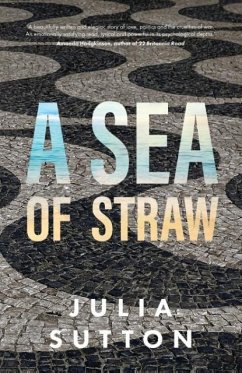1966, Jody, a Manchester designer, and her baby girl Anna come to Lisbon to enjoy themselves far away from her estranged husband. When she meets the Portuguese painter Zé, she immediately falls for him. Soon they are making plans even though Zé is supposed to join the military, but he is positive
that his father can bail him out. Jody and Anna need to return to England, but this is only meant for…mehr1966, Jody, a Manchester designer, and her baby girl Anna come to Lisbon to enjoy themselves far away from her estranged husband. When she meets the Portuguese painter Zé, she immediately falls for him. Soon they are making plans even though Zé is supposed to join the military, but he is positive that his father can bail him out. Jody and Anna need to return to England, but this is only meant for leaving her husband finally and packing her belongings before she can ultimately settle in Lisbon. Zé is waiting for her, but she never embarks the ferry she is supposed to take. Zé is desperate, not only because of longing for Jody but also for wanting to escape from the approaching date of his marching order. He does not want to become a supporter of the Salazar system; thus he decides the risky way across the border to join Jody in England.
Julia Sutton’s novel is set against the complicate political situation in Portugal at the end of the 1960s. Even though the protagonist Zé seems to be a bit naive and not a leader of any underground movement to overthrow the oppressive system, you get an insight in how the rulers and especially the secret service worked at the time. Even though the love story is the main motor to drive the story, the political aspects dominate over large parts of the story.
It is especially the moment when Zé is captured by PIDE that the novel becomes most interesting and convincing. What he experiences in prison, the treatment and methods of making prisoners not only betray their friends and comrades but also how they are tricked and how little a human life is worth – repellent and disgusting. However, this is neither unusual nor especially brutal, it is just how these kind of systems work.
On the other hand, I found the societal or rather familial pressure which Jody experiences back in England almost as cruel as what Zé suffers in Portugal. How clearly her husband makes decisions and can enforce them – unbelievable for us today, but in the 1960s women were far from enjoying the rights they do today.
Even though the novel had many though-provoking aspects and was surely well researched, I found it was a bit long drawn-out at times and going round in circles. It lacked a bit of focus, was it meant to tell or love story or rather depict life in Portugal under the Salazar regime or show how limited female freedom was at that time? The author seems to be a bit undecided about it.








